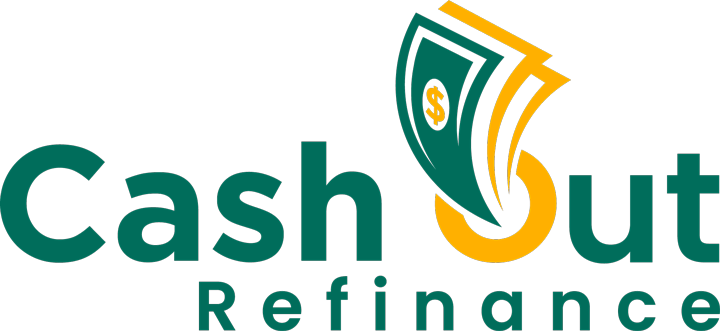Refinancing your home is a major financial decision, and choosing the right option can make a world of difference in terms of cost and convenience. One refinancing option that often stands out for homeowners, particularly those with lower credit scores or limited equity, is the FHA cash-out refinance. Insured by the Federal Housing Administration (FHA), this refinancing program allows homeowners to access their home equity by replacing their existing mortgage with a new, larger loan. The difference between the two loan amounts is given to the borrower in cash, which can be used for various purposes like home improvements, debt consolidation, or major purchases.
Benefits of FHA cash-out refinance
In this blog post, we’ll explore five key reasons to choose an FHA cash-out refinance for your home, focusing on how it helps homeowners with lower credit scores and less equity. Whether you’re looking to improve your home, pay off high-interest debt, or boost your financial stability, an FHA cash-out refinance may be the right solution for you.

1. Easier Qualification with Lower Credit Score Requirements
One of the biggest advantages of an FHA cash-out refinance is the lower credit score requirement compared to other refinancing options. Homeowners who may not qualify for a conventional cash-out refinance due to poor or fair credit scores can still benefit from an FHA loan.
Lower Credit Score Threshold
Most conventional loans require a minimum credit score of 620 or higher to qualify for a cash-out refinance, and borrowers with lower credit scores often face higher interest rates or additional barriers. On the other hand, FHA cash-out refinances have a minimum credit score requirement of 580, which is significantly lower than what is needed for a conventional refinance.
This lower threshold makes the FHA cash-out refinance an appealing option for borrowers who may have struggled with their credit in the past but are working toward financial improvement. If your credit score falls between 580 and 619, you can still access the equity in your home and refinance your mortgage without being penalized by higher interest rates that typically accompany low credit scores on conventional loans.
Flexible Credit Evaluation
In addition to the lower credit score requirement, the FHA takes a more flexible approach when evaluating a borrower’s overall financial situation. The program considers factors such as payment history and current debt-to-income ratio, which means that even if your credit score isn’t perfect, you may still qualify based on other strengths in your financial profile.
For homeowners who have experienced financial setbacks such as medical bills, job loss, or other unexpected expenses, the FHA cash-out refinance can provide a valuable opportunity to regain control of their finances.
2. Flexibility for Homeowners with Less Equity
Another key benefit of an FHA cash-out refinance is the loan-to-value ratio (LTV) flexibility it offers. Homeowners with less equity in their homes may find it difficult to qualify for conventional refinancing options, but FHA loans are more lenient when it comes to how much equity you need to access cash.
FHA LTV Requirements
The FHA allows homeowners to refinance up to 80% of their home’s value. For example, if your home is appraised at $300,000, you could potentially borrow up to $240,000, provided that you meet all other eligibility requirements. This LTV flexibility makes the FHA cash-out refinance a good option for homeowners who haven’t yet built up substantial equity but still want to tap into the value of their property.
Less Equity Needed than Conventional Loans
In comparison, many conventional lenders may only allow cash-out refinances with a maximum LTV of 70% to 75%, meaning you would need significantly more equity to qualify for a conventional cash-out refinance. For homeowners who have recently purchased their homes or live in areas with slower property appreciation, the FHA’s 80% LTV limit can make a significant difference in qualifying for a refinance and accessing cash.
This makes the FHA cash-out refinance especially valuable for first-time homebuyers who may not have accumulated much equity yet, but who need to use their home’s value for urgent financial needs such as debt consolidation or home repairs.
3. FHA Mortgage Insurance Benefits and Lower Interest Rates for Less-than-Perfect Credit
When it comes to refinancing, interest rates and mortgage insurance play a critical role in determining the overall cost of the loan. For homeowners with less-than-perfect credit, the FHA cash-out refinance offers competitive interest rates and provides a manageable way to handle mortgage insurance.
Competitive Interest Rates for Lower Credit Scores
Typically, borrowers with lower credit scores are subject to higher interest rates on conventional loans. This can increase the overall cost of borrowing and make refinancing less appealing. However, because FHA loans are insured by the federal government, lenders are willing to offer lower interest rates to borrowers who may not qualify for the best rates on a conventional loan.
In many cases, homeowners with credit scores in the low 600s can secure an interest rate through the FHA program that is comparable to what higher credit score borrowers would receive through conventional loans. This means you can still refinance your mortgage without worrying about excessive interest rate penalties due to a lower credit score.
FHA Mortgage Insurance Premium (MIP)
While FHA loans do require mortgage insurance premiums (MIP), they are often more affordable than the private mortgage insurance (PMI) required for conventional loans with less than 20% equity. FHA mortgage insurance consists of two components:
- Upfront MIP: This is typically 1.75% of the loan amount and is paid at the time of closing, though many borrowers choose to roll this cost into their loan balance.
- Annual MIP: This ranges from 0.45% to 1.05% of the loan amount, depending on the loan-to-value ratio and the loan term.
For borrowers with lower credit scores, the FHA cash-out refinance offers the benefit of mortgage insurance that’s easier to qualify for and often less costly than conventional PMI. This is especially true for those who would otherwise struggle to qualify for a conventional loan without paying exorbitant PMI costs.
4. Opportunity for Debt Consolidation
One of the most practical uses of the cash from an FHA cash-out refinance is debt consolidation. For homeowners dealing with high-interest credit card debt, personal loans, or other types of consumer debt, refinancing with the FHA cash-out option can be an effective way to consolidate and lower your monthly debt payments.
Lowering High-Interest Debt
If you’re carrying balances on credit cards or personal loans with high interest rates, refinancing your mortgage with an FHA cash-out refinance allows you to pay off those debts at a much lower mortgage interest rate. Since mortgage interest rates are generally lower than the rates on credit cards or personal loans, consolidating your debts into one mortgage payment can save you significant money on interest over time.
Simplifying Finances
Debt consolidation through a cash-out refinance also simplifies your monthly finances. Instead of juggling multiple payments with different interest rates and due dates, you’ll have one fixed mortgage payment to manage each month. This can reduce the likelihood of missed or late payments, helping you avoid late fees and further credit damage.
By consolidating debt with an FHA cash-out refinance, you not only reduce your interest costs but also improve your financial health by making your monthly obligations more manageable.
5. A Strategic Option for Home Improvements and Renovations
Lastly, one of the most common reasons homeowners choose an FHA cash-out refinance is to fund home improvements or renovations. Tapping into your home’s equity to finance upgrades can increase your property’s value, enhance your living space, and potentially lead to a higher return on investment when you decide to sell.
Increasing Your Home’s Value
Using an FHA cash-out refinance to invest in home improvements can add significant value to your property. Whether you’re upgrading your kitchen, adding a new bathroom, or installing energy-efficient windows, the cash from your refinance can help cover the costs of these projects.
Strategic renovations not only improve your quality of life but also increase your home’s market value, making it easier to sell at a higher price when the time comes. The FHA cash-out refinance provides an affordable way to finance these improvements, especially for homeowners who might not qualify for conventional home improvement loans due to credit or equity limitations.
Essential Repairs and Maintenance
For homeowners facing essential repairs such as a new roof, plumbing updates, or electrical work, a cash-out refinance can provide the necessary funds to maintain the safety and integrity of the property. These repairs are not only important for maintaining your home’s value but also for avoiding further damage that could result in higher costs down the road.
By using the funds from an FHA cash-out refinance to improve your home, you’re making a smart investment in your property’s future, ensuring that it remains a valuable asset for years to come.
Final Thoughts
The FHA cash-out refinance is a versatile and accessible option for homeowners with lower credit scores or limited equity who are looking to tap into their home’s value. Whether you’re seeking to consolidate debt, make home improvements, or simply access cash for other financial goals, this refinance option offers several distinct advantages.
From the easier qualification process to the flexibility for homeowners with less equity, choosing an FHA cash-out refinance can be a strategic financial decision for many. With the added benefit of lower interest rates for those with less-than-perfect credit, it’s no wonder that so many homeowners are turning to the FHA program as a solution to their refinancing needs.
If you’re considering a cash-out refinance, be sure to consult with a mortgage professional to discuss your eligibility and explore how the FHA option could work for you.

